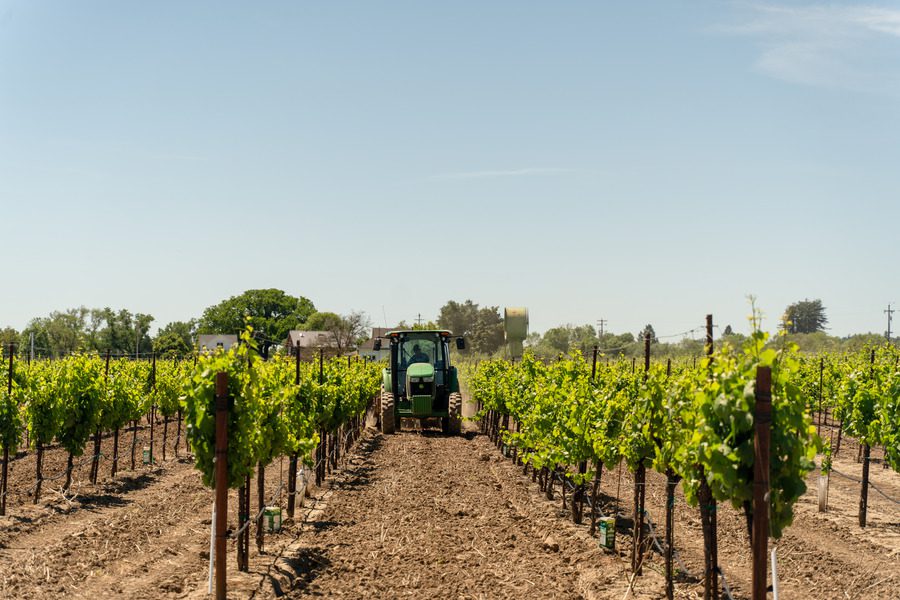Barriers to Technology Adoption in Agriculture: Are Farmers Really Slow?

Farmers have a reputation for being slow to adopt technology.
And it’s not just a narrative that gets pushed by agtech companies.
Growers themselves sometimes believe it, at least about other growers. I’ve had more than one conversation with a grower who was interested in Lumo but readily cautioned how difficult it would be to get others interested in trying, trusting and adopting our smart valves.
But I guess, the longer I work at Lumo, the more I question whether it’s true.
I don’t buy it.
The part of the narrative that never made sense to me was how hard it conflicted with how my dad farmed.
I grew up in rural Ontario on a 250-acre farm. We raised beef cattle (Maine-Anjous) and grew cash crops (corn and soybeans mostly).
And my dad was constantly reading and researching new ways to improve yields. He was obsessed with experimenting, trying new sprays or new seed depths or densities, and with benchmarking himself against his neighbors down the road or at the co-op. (He always believed using cow manure as fertilizer gave him an unfair advantage.)
He didn’t have his head in the sand. He had his eyes on the horizon, searching for incremental improvements wherever he could find them—year after year after year.
Was he quick to jump on every new gadget? No. Not at all. He was extremely resourceful and knew how to get by with what he already had. He fixed his own equipment and took great pride in maintaining it.
Was he skeptical of the claims made by ag companies selling products? 100%. He was always far more interested in his firsthand experience or what the farmers he knew were trying nearby with success. Real world results, not marketing hype.
And was he occasionally too slow to adopt a new way of doing things or a new solution that actually made a difference? Of course. He was fiercely independent in his thinking and always reluctant to follow the herd, even when the herd was headed in the right direction.
But he didn’t regret it. He knew that was the cost of being prudent and frugal. He knew he couldn’t afford to take big risks. That wasn’t the game he was playing.
Farmers aren’t Venture Capitalists.
Farming isn’t venture capital investing. They’re not looking for or all that interested in asymmetric upside.
Because in farming, it’s the downside that matters most. One big risk paying off isn’t going to pay for a bunch of other failures. In fact, from decades of experience, most farmers would tell you that massive 10X style improvements don’t exist in farming.
Instead, it’s all about marginal, incremental improvement. Small tweaks that lead to increases in yield or improvements in quality over time. Linking those together, year after year. Many small bets, but that all have a high chance of leading to success, and even more importantly, that have a very low risk of outright failure.
It’s a low margin business and you grind out improvements, hoping to stay alive for another season and maybe make some money when the weather and markets are good.
Taking risks on unproven technology isn’t a winning strategy and as a result, it’s not the prevailing mentality.
But that doesn’t mean they don’t adopt new tools that produce real returns.
Working at Lumo, I get a biased sample of farmers. No doubt. But the growers I talk to for interviews or at events are extremely engaged in what they’re doing. They are actively looking for a better way to irrigate.
And almost all of them have tried the tools available! When you talk about automation in particular, they’ll tell you about all the different systems they’ve tried in the past and how the results have been mixed at best.
When Devon and Bennett, our cofounders, went to the market to talk about irrigation automation, without even a product to sell, growers were eager to share their experiences and talk about what a new product would need to do to actually solve their most pressing irrigation challenges.
When we talk to growers at Central Valley events or at webinars with CAWG and SVVGA, the growers there have heard of Lumo and are super interested in learning more about how the solution we offer differs from the things they’ve seen in the past.
These. People. Do. Not. Have. Their. Heads. In. The. Sand.
Now look, tech companies always want to grow fast. And yes, as a marketer at an agtech company, I sometimes wish growth and expansion would happen even faster than it already is. That would be great!
But it also runs counter to how agriculture works. Growers want to try Lumo for a season before they expand across their entire acreage. That’s prudent risk management. Good business. Farming 101.
And when they see the results they want to see, what do they do? They expand! They adopt. Because they’re in the business of repeatable success, continuing to double down on what works and letting go of the experiments that failed to produce a tangible result.
Farmers are cautious and skeptical by nature. Averse to risk.
But they’re also eager to learn, always tinkering and experimenting and looking for ways to make things better.
If you give them a tool that works, they will use it.
If you're looking to try an irrigation automation system that provides a tangible ROI, there's still time to get started with Lumo this season! Send us an email at [email protected] or request a demo here.